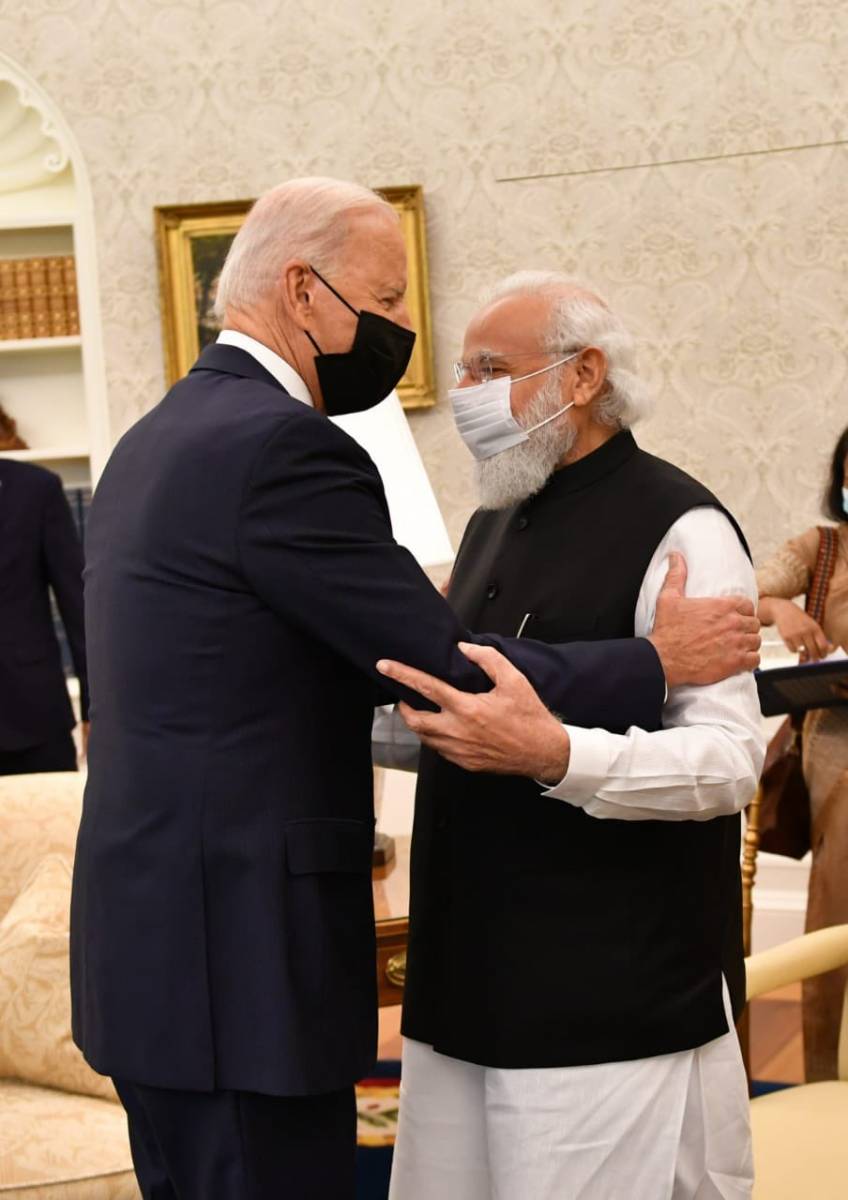Beijing and Moscow, who have not been invited to the virtual gathering on Thursday and Friday, have denounced the summit as an “exercise in hypocrisy” to promote US hegemony. ..writes Reena Bhardwaj
President Joe Biden and his administration will host their first “Summit for Democracy” this week, a virtual gathering of more than one hundred countries including India to discuss the challenges faced by democracy and ways to boost democratic ideals around the world. And at this forum US sees India as an “indispensable partner” for democratic cooperation.
On December 9 and 10, the summit will bring together state leaders, civil society and private sector representatives that the US sees as a “galvanizing moment” for the world’s democracies to come together to face the most pressing challenges.
“To work together to defend against authoritarianism, to elevate the fight against corruption, and to advance human rights both at home and abroad, we see India indispensable in this effort,” Under-Secretary for Civilian Security, Democracy, and Human Rights Uzra Zeya told ANI.
“We are determined and we are optimistic that working with Democratic partners like India and partners from all over the world, we can turn the tide on these issues and truly show that democracy can adapt and can rise to 21st-century challenges and ultimately prevail,” Zeya added.

Beijing and Moscow, who have not been invited to the virtual gathering on Thursday and Friday, have denounced the summit as an “exercise in hypocrisy” to promote US hegemony. With the absence of some of India’s closest democratic neighbours like Bangladesh, Sri Lanka, and Bhutan; China further views the summit as a strategy to divide Asia.
Responding to that criticism the Under-Secretary said, “This summit is not about divisions or blocks, and in fact, our approach in participation was to try to achieve a broad, global geographic representation and assess and include governments that we see as ready to work with us on the three pillars of countering authoritarianism, fighting corruption, and advancing human rights.”
Further infuriating Beijing, Taiwan, a self-ruling democracy it claims as part of its territory, has been invited, as is Nathan Law, a pro-democracy activist and former legislator from Hong Kong now exiled in London.
In tandem with the event, China’s cabinet, the State Council, released Saturday a white paper titled “China: Democracy That Works.”. Beijing argues that there is no fixed model of democracy and says that its system represents a distinctive form of democracy, a system that works much better than the United States.
“I think there’s no one fixed model for democracy but certainly, democracy is underpinned by universal principles and specifically universal rights enshrined in the Universal Declaration of Human Rights, freedom of expression, freedom of association, ultimately, government by and for the people, where the government is accountable to its people to deliver and this is also underpinned by the principle of free and fair elections, with a peaceful transfer of power and universal suffrage,” Zeya firmly asserted.
Regarding Beijing Winter Olympics, on Wednesday, UK Prime Minister Boris Johnson said no ministers will attend due to alleged human rights abuses in China, which Beijing strongly denies. Canada followed suit later in the day, also citing human rights concerns. It comes after similar announcements by the US and Australia earlier this week.
“Our decision not to send an official delegation to the Winter Olympics and Paralympics is a reflection of our deep concerns with respect to the ongoing genocide occurring in Xinjiang and other human rights violations in China,” the Under-Secretary told ANI.

Besides China and Russia, critics at home too, often highlight how the US itself is facing some of the gravest threats in years to its democratic traditions and institutions. As the president launches the administration’s inaugural summit, determined to show the world democracy can still work, Zeya agrees “It’s true, no, democracy is perfect, but we continually strive to create a more perfect union as our constitution asks us to do. So, we will be open about describing some of the challenges we’re facing and on the home front as well as internationally. But I think what sets this summit apart is this is going to be about solutions. It’s going to be about listening and learning from one another here and best practices in deciding what we can do together that hopefully together we can be even more effective than we are bilaterally.”
Meanwhile, Pakistan, China’s all-weather ally, on Wednesday turned down US’ invitation to take part in the Summit for Democracy.
Pakistan thanked the US for the invitation but said that it would engage with the country on a wide range of issues “at an opportune time in the future”, Geo News quoted the country’s Foreign Office as saying in a statement.
At the forum, the participating countries will announce new commitments for strengthening democracy. Washington will announce new initiatives and commitments at the summit in areas such as bolstering free and independent media, fighting corruption, defending free and fair elections, strengthening democratic reforms, and harnessing technology for democratic renewal. (ANI)

Leave a Reply